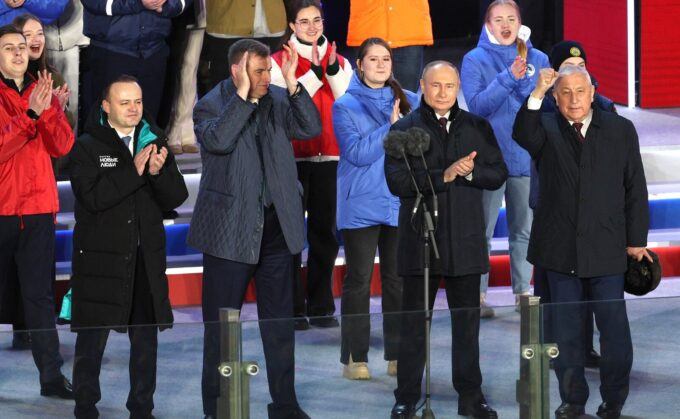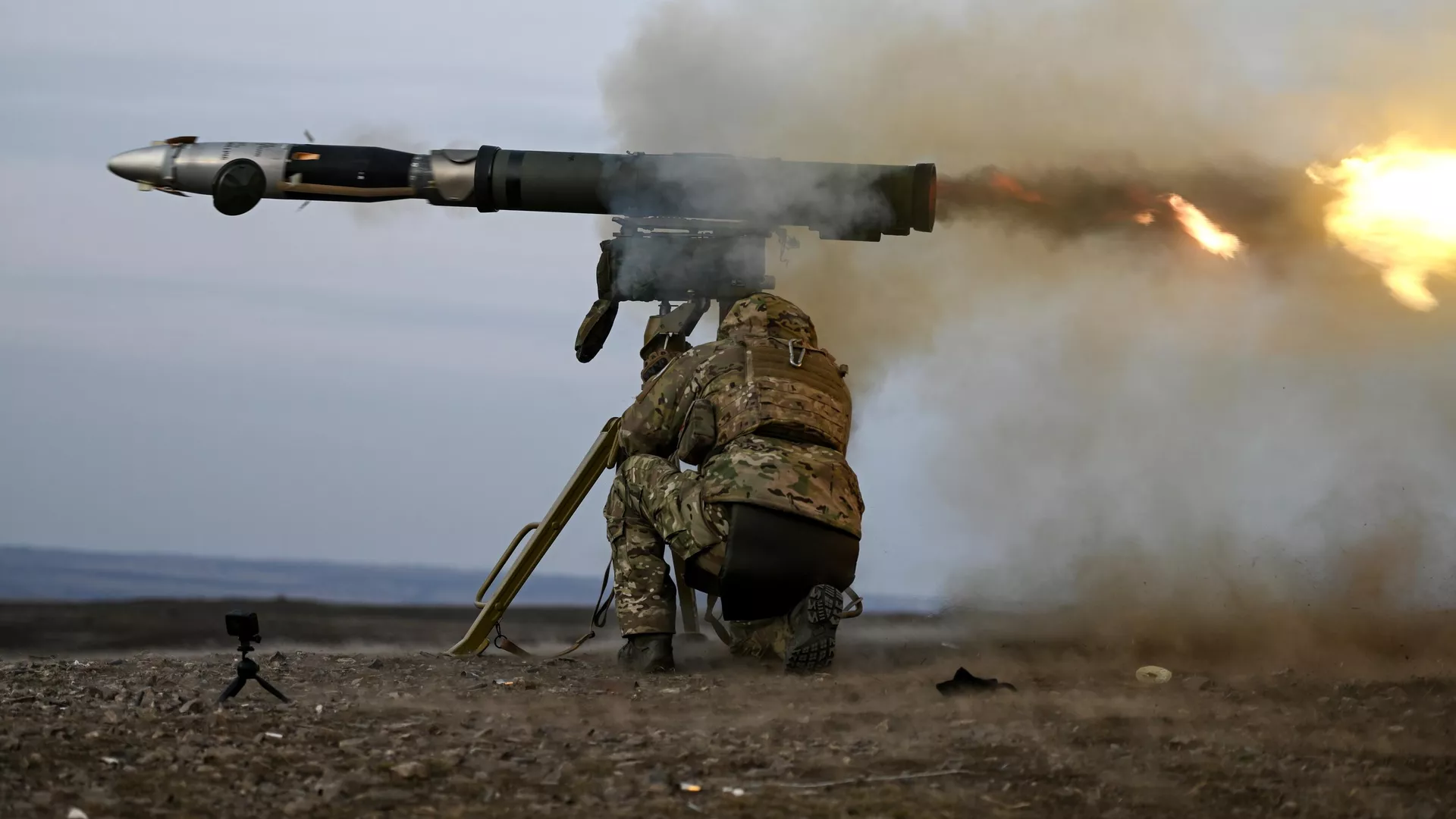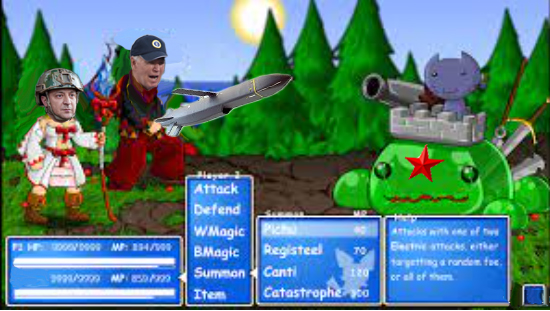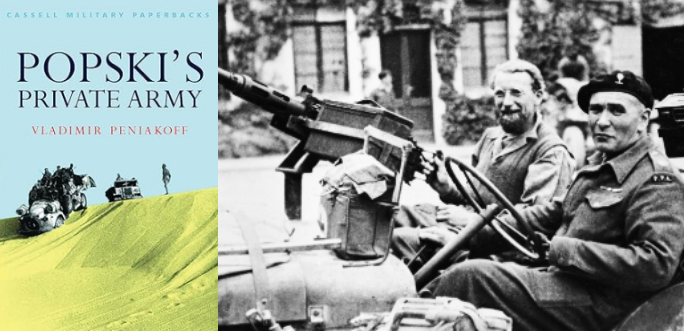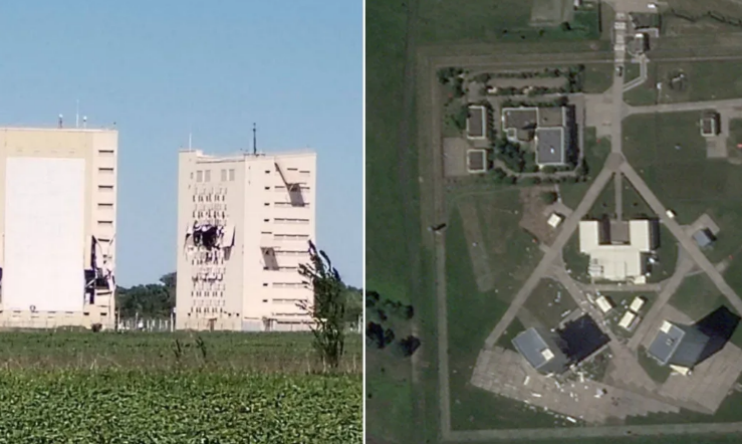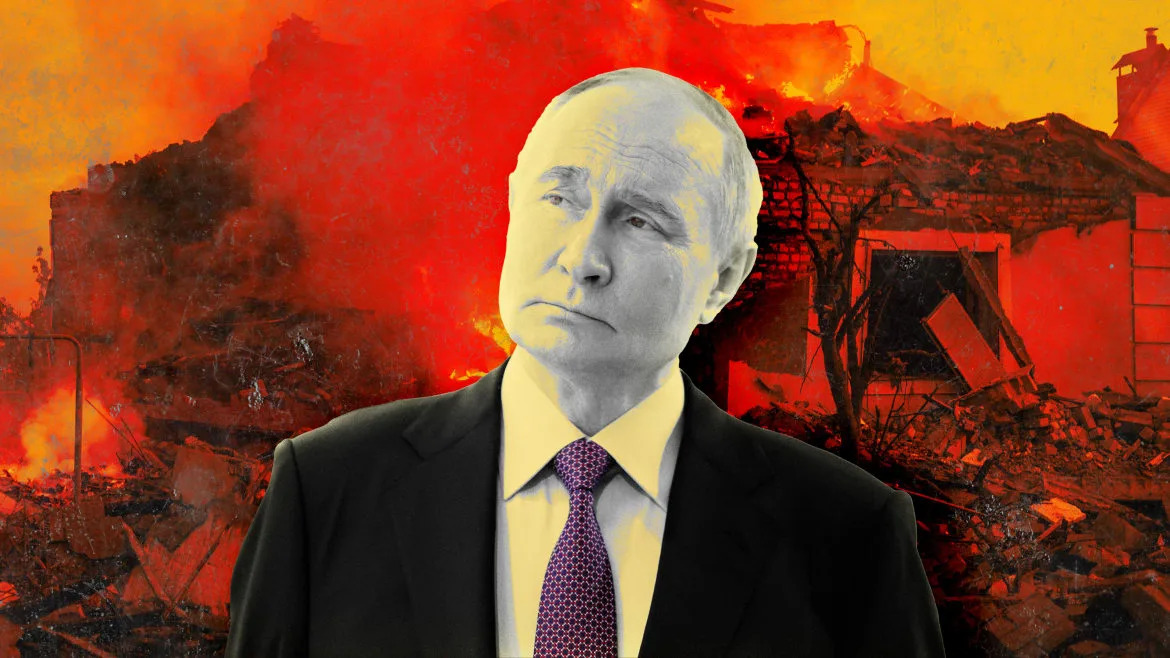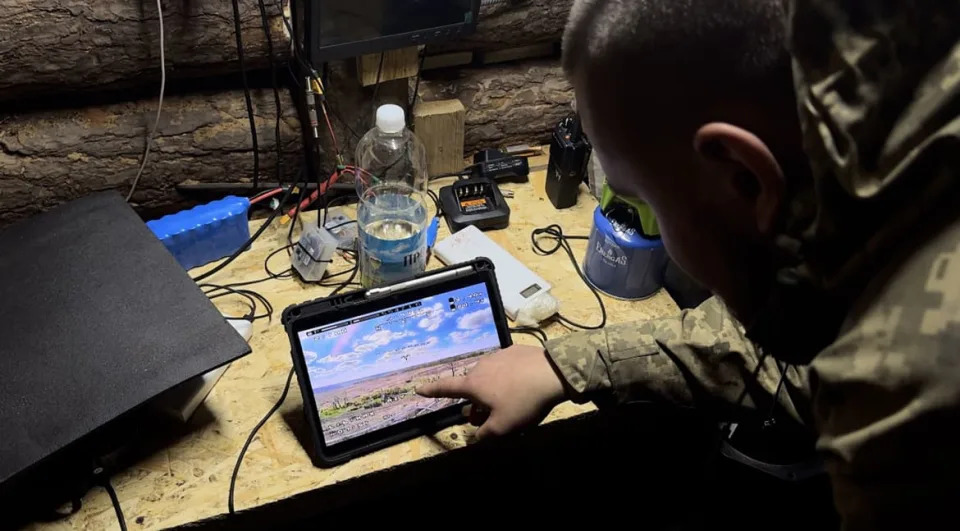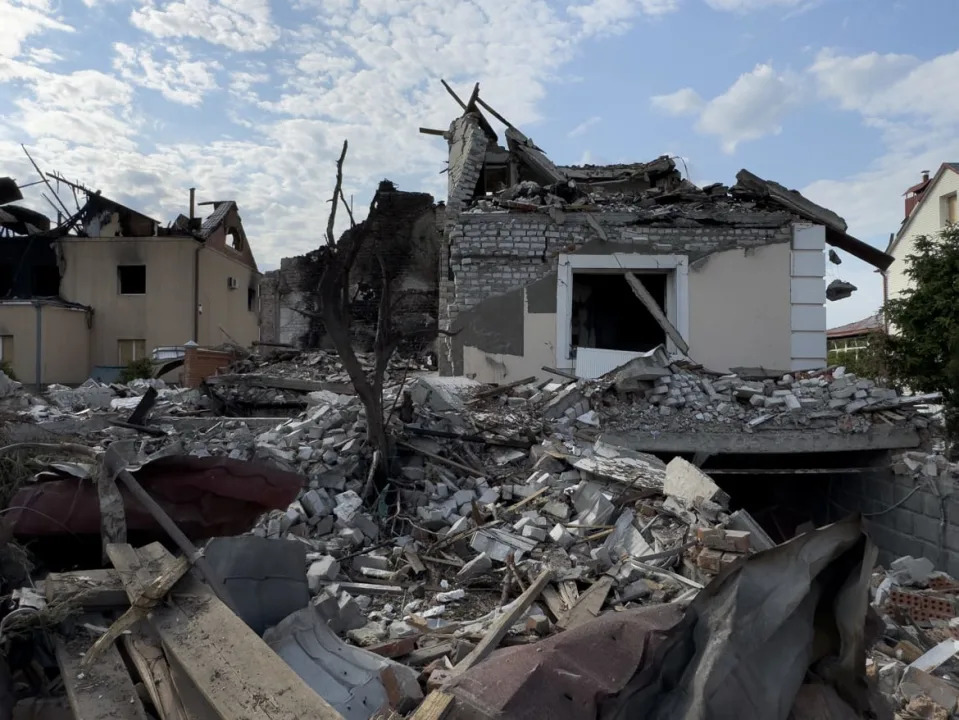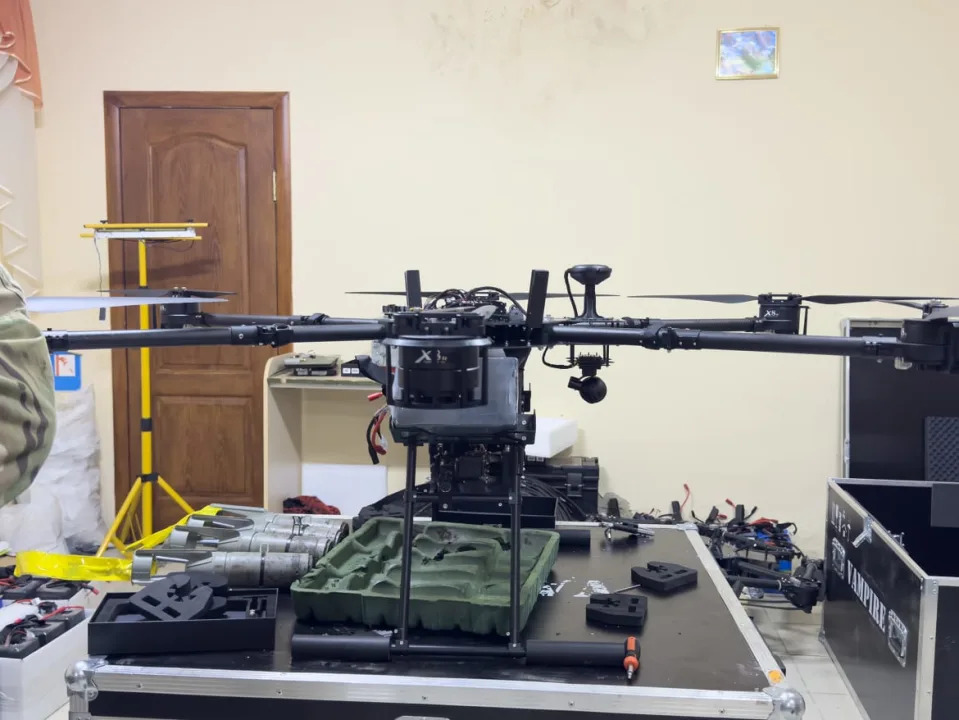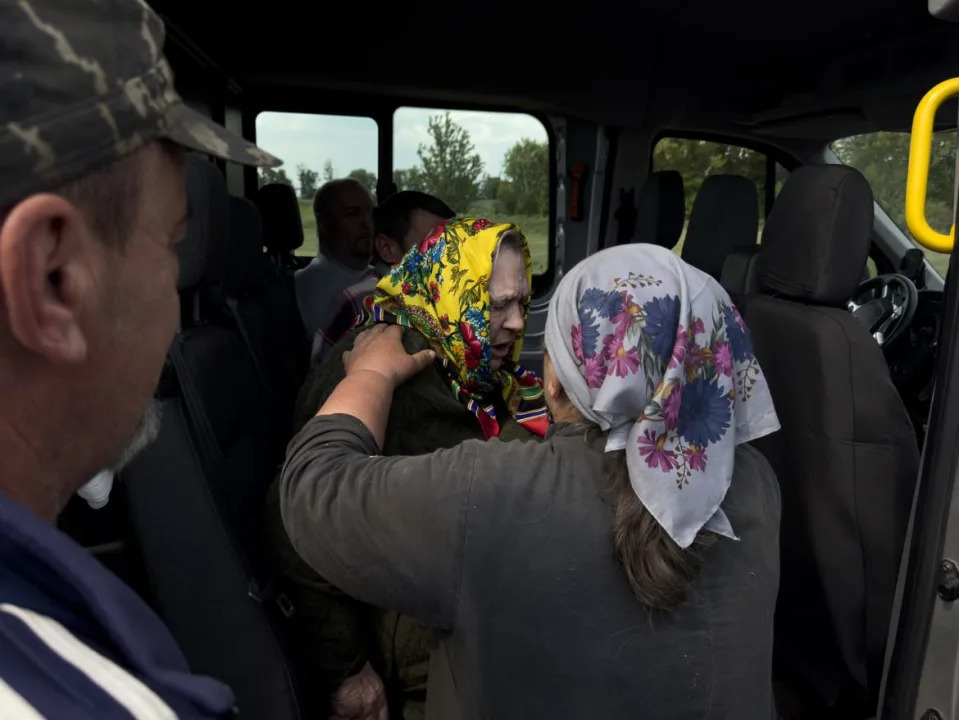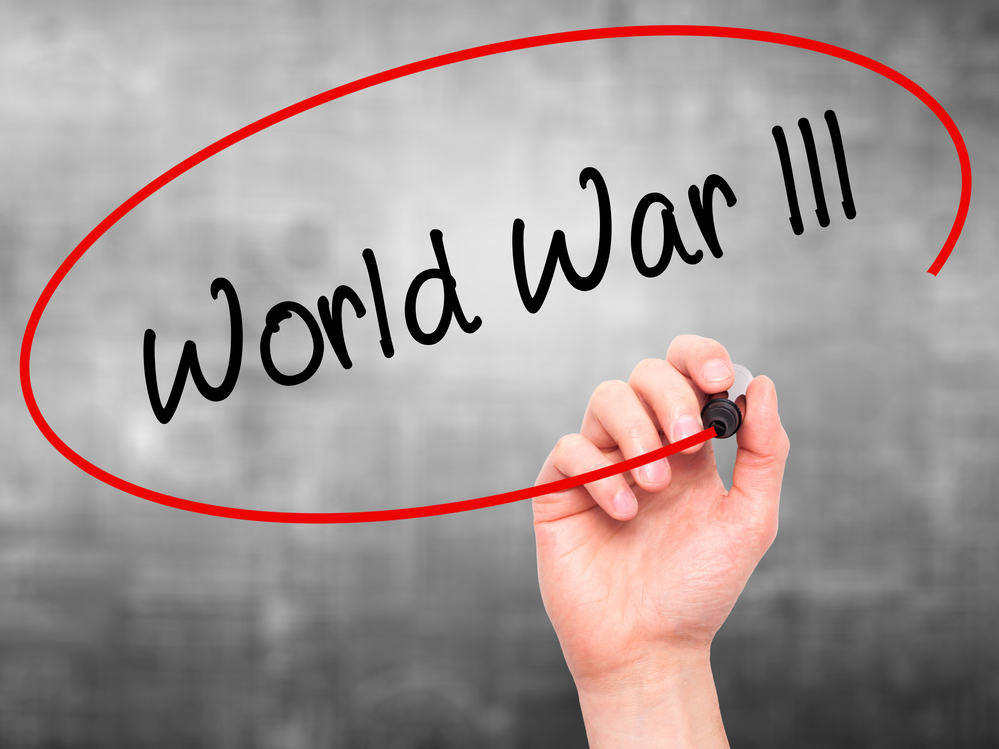• 1,600 WORDS •

It is only by understanding and taking the Russian nuclear warnings seriously that we may exclude the risk of nuclear weapons coming into play.
The G7 and the subsequent Swiss ‘Bürgenstock Conference’ can – in retrospect – be understood as preparation for a prolonged Ukraine war. The three centrepiece announcements emerging from the G7 – the 10 year Ukraine security pact; the $50 ‘billion Ukraine loan’; and the seizing of interest on Russian frozen funds – make the point. The war is about to escalate.
These stances were intended as preparation of the western public ahead of events. And in case of any doubts, the blistering belligerency towards Russia emerging from the European election leaders was plain enough: They sought to convey a clear impression of Europe preparing for war.
What then lies ahead? According to White House Spokesman John Kirby:
“Washington’s position on Kiev is “absolutely clear”:
“First, they’ve got to win this war”.
“They gotta win the war first. So, number one: We’re doing everything we can to make sure they can do that. Then when the war’s over … Washington will assist in building up Ukraine’s military industrial base”.
If that was not plain, the U.S. intent to prolong and take the war deep into Russia was underlined by National Security Adviser Jake Sullivan: “Authorization for Ukrainian use of American weapons for cross-border attacks extends to anywhere [from which] Russian forces are coming across the border”. He affirmed, too, that Ukraine can use F-16s to attack Russia and use U.S. supplied air defence systems “to take down Russian planes – even if in Russian airspace – if they’re about to fire into Ukrainian airspace”.
Ukrainian pilots have the latitude to judge ‘the intent’ of Russian fighter aircraft? Expect the parameters of this ‘authorisation’ to widen quickly – deeper to air bases from which Russian fighter bombers launch.
Understanding that the war is about to transform radically – and extremely dangerously – President Putin (in his speech to the Foreign Ministry Board) detailed just how the world had arrived at this pivotal juncture – one which could extend to nuclear exchanges.
The gravity of the situation itself demanded the making of one ‘last chance’ offer to the West, which Putin emphatically said was “no temporary ceasefire for Kiev to prepare a new offensive; nor was it about freezing the conflict”; but rather, his proposals were about the war’s final completion.
“If, as before, Kiev and western capitals refuse it – then at the end, that’s their business”, Putin said.
Just to be clear, Putin almost certainly never expected the proposals to be received in the West other than by the scorn and derision with which they, in fact, were met. Nor would Putin trust – for a moment – the West not to renege on an agreement, were some arrangement to be reached on these lines.
If so, why then did President Putin make such a proposal last weekend, if the West cannot be trusted and its reaction was so predictable?
Well, maybe we need to search for the nesting inner Matryoshka doll, rather than fix on the outer casing: Putin’s ‘final completion’ likely will not credibly be achieved through some itinerant peace broker. In his Foreign Ministry address, Putin dismisses devices such as ‘ceasefires’ or ‘freezes’. He is seeking something permanent: An arrangement that has ‘solid legs’; one that has durability.
Such a solution – as Putin before has hinted – requires a new world security architecture to come into being; and were that to happen, then a complete solution for Ukraine would flow as an implicit part to a new world order. That is to say, with the microcosm of a Ukraine solution flowing implicitly from the macrocosm agreement between the U.S. and the ‘Heartland’ powers – settling the borders to their respective security interests.
This clearly is impossible now, with the U.S. in its psychological mindset stuck in the Cold War era of the 1970s and 1980s. The end to that war – the seeming U.S. victory – set the foundation to the 1992 Wolfowitz Doctrine which underscored American supremacy at all costs in a post-Soviet world, together with “stamping out rivals, wherever they may emerge”.
“In conjunction with this, the Wolfowitz Doctrine stipulated that the U.S. would … [inaugurate] a U.S.-led system of collective security and the creation of a democratic zone of peace”. Russia, on the other hand, was dealt with differently—the country fell off the radar. It became insignificant as a geopolitical competitor in the eyes of the West, as its gestures of peaceful offerings were rebuffed – and guarantees given to it regarding NATO’s expansion forfeited”.
“Moscow could do nothing to prevent such an endeavour. The successor state of the mighty Soviet Union was not its equal, and thus not considered important enough to be involved in global decision-making. Yet, despite its reduced size and sphere of influence, Russia has persisted in being considered a key player in international affairs”.
Russia today is a preeminent global actor in both the economic and political spheres. Yet for the Ruling Strata in the U.S., equal status between Moscow and Washington is out of the question. The Cold War mentality still infuses the Beltway with the unwarranted confidence that the Ukraine conflict might somehow result in Russian collapse and dismemberment.
Putin in his address, by contrast, looked ahead to the collapse of the Euro-Atlantic security system – and of a new architecture emerging. “The world will never be the same again”, Putin said.
Implicitly, he hints that such a radical shift would be the only way credibly to end the Ukraine war. An agreement emerging from the wider framework of consensus on the division of interests between the Rimland and the Heartland (in Mackinder-esque language) would reflect the security interests of each party – and not be achieved at the expense of others’ security.
And to be clear: If this analysis is correct, Russia may not be in such a hurry to conclude matters in Ukraine. The prospect of such a ‘global’ negotiation between Russia-China and the U.S. is still far off.
The point here is that the collective western psyche has not been transformed sufficiently. Treating Moscow with equal esteem remains out of the question for Washington.
The new American narrative is no negotiations with Moscow now, but maybe it will become possible sometime early in the new year – after the U.S. elections.
Well, Putin might surprise again – by not jumping at the prospect, but rebuffing it; assessing that the Americans still are not ready for negotiations for a ‘complete end’ to the war – especially as this latest narrative runs concurrently with talk of a new Ukraine offensive shaping up for 2025. Of course, much is likely to change over the coming year.
The documents outlining a putative new security order however, were already drafted by Russia in 2021 – and duly ignored in the West. Russia perhaps can afford to wait out military events in Ukraine, in Israel, and in the financial sphere.
They are all, in any event, trending Putin’s way. They are all inter-connected and have the potential for wide metamorphosis.
Put plainly: Putin is waiting on the shaping of the American Zeitgeist. He seemed very confident both at St Petersburg and last week at the Foreign Ministry.
The backdrop to the G7’s Ukraine preoccupation seemed to be more U.S. elections-related, than real: This implies that the priority in Italy was election optics, rather than a desire to start a full-blown hot war. But this may be wrong.
Russian speakers during these recent gatherings – notably Sergei Lavrov – hinted broadly that the order already had come down for war with Russia. Europe seems, however improbably, to be gearing up for war – with much chatter about military conscription.
Will it all blow away with the passing of a hot summer of elections? Maybe.
The coming phase seems likely to entail western escalation, with provocations occurring inside Russia. The latter will react strongly to any crossing of (real) red lines by NATO, or any false flag provocation (now widely expected by Russiam military bloggers).
And herein lies the greatest danger: In the context of escalation, American disdain for Russia poses the greatest danger. The West now says it treats notions of putative nuclear exchange as Putin’s ‘bluff’. The Financial Times tells us that Russia’s nuclear warnings are ‘wearing thin’ in the West.
If this is true, western officials utterly misconceive the reality. It is only by understanding and taking the Russian nuclear warnings seriously that we may exclude the risk of nuclear weapons coming into play, as we move up the escalatory ladder with tit-for-tat measures.
Even though they say they believe them to be bluff, U.S. figures nonetheless hype the risk of a nuclear exchange. If they think it to be a bluff, it appears to be based on the presumption that Russia has few other options.
This would be wrong: There are several escalatory steps that Russia can take up the ladder, before reaching the tactical nuclear weapon stage: Trade and financial counter-attack; symmetrical provision of advanced weaponry to western adversaries (corresponding to U.S. supplies to Ukraine); cutting the electricity branch distribution coming from Poland, Slovakia, Hungary and Romania; strikes on border munition crossings; and taking a leaf from the Houthis who have knocked down several sophisticated and costly U.S. drones, disabling America’s intelligence, surveillance and reconnaissance (ISR) infrastructure.
…………………
(Republished from Strategic Culture Foundation)




